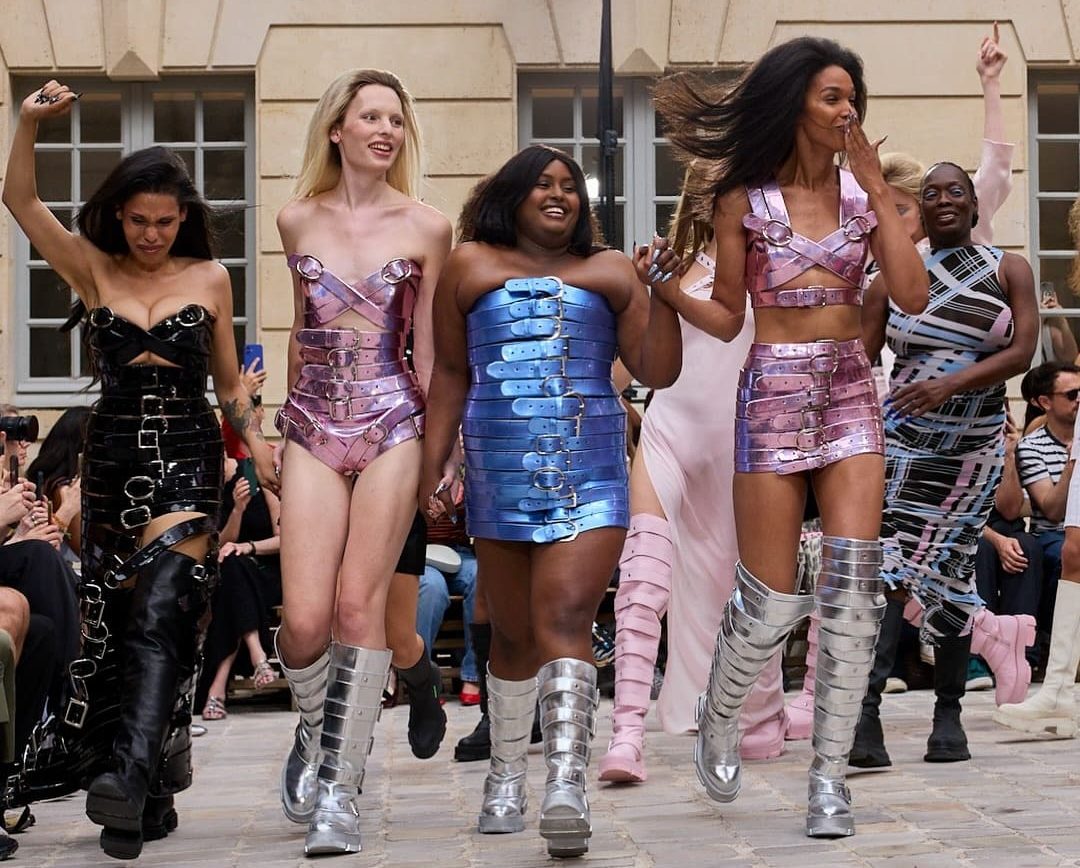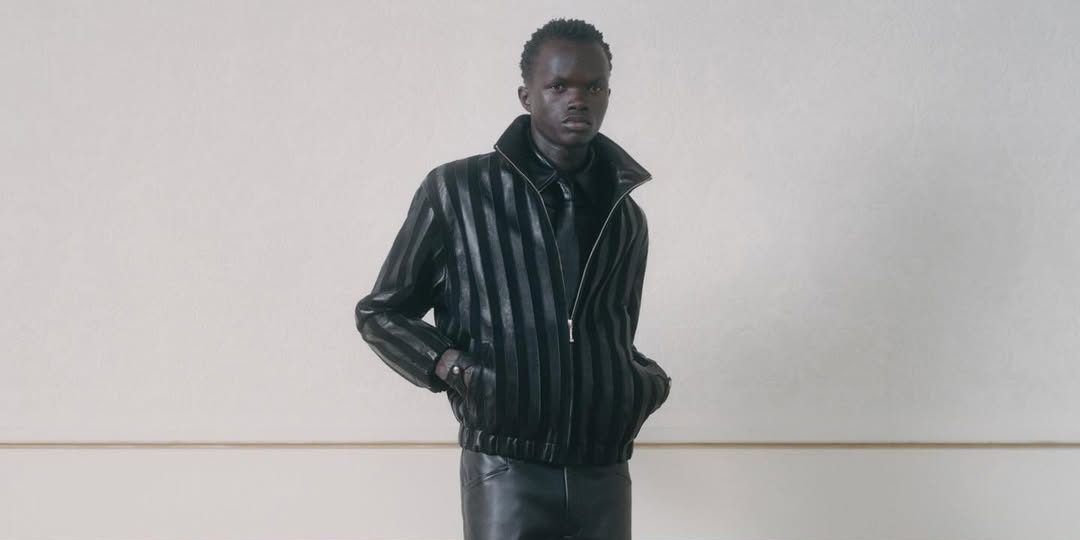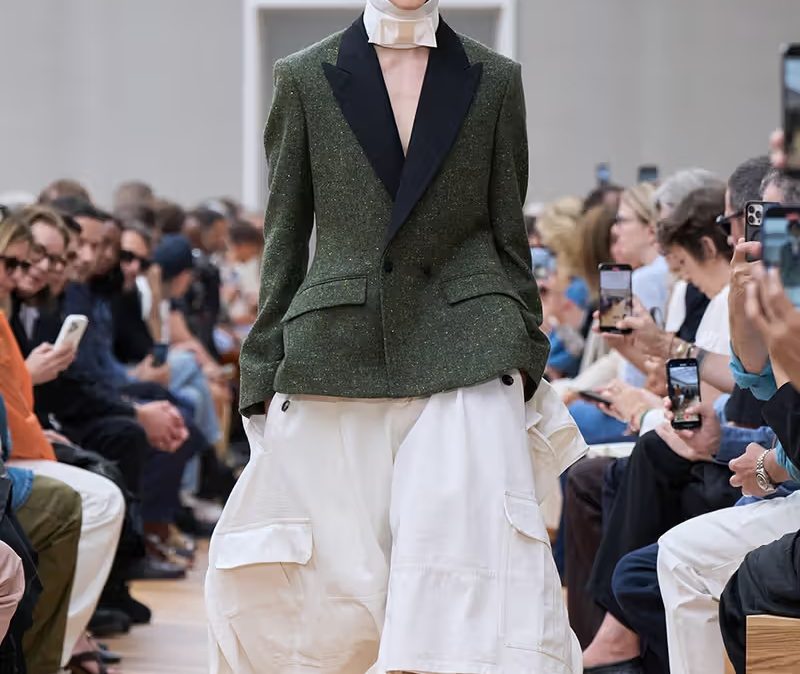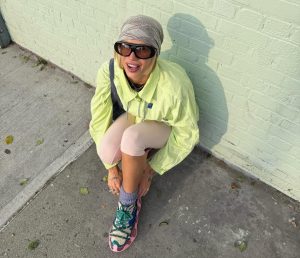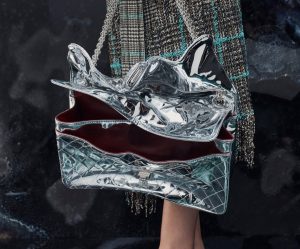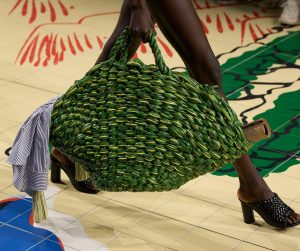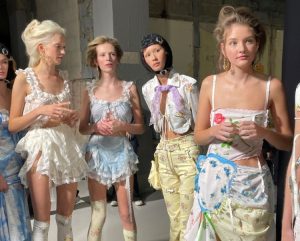As Paris Men’s Fashion Week is in full swing, some designers are breaking away from traditional standards to offer more inclusive castings. Between political statements and a desire for democratization, here’s a look at those who are shaking things up.
Jeanne Friot enters into “Resistance”
Between Fashion Week and Pride, June is loaded with symbols. Jeanne Friot, who is true to her political vision of fashion, embraces them powerfully. Her Spring-Summer 2026 collection, titled “Resistance”, loudly affirms her support for the queer community through a 100% trans and non-binary show.
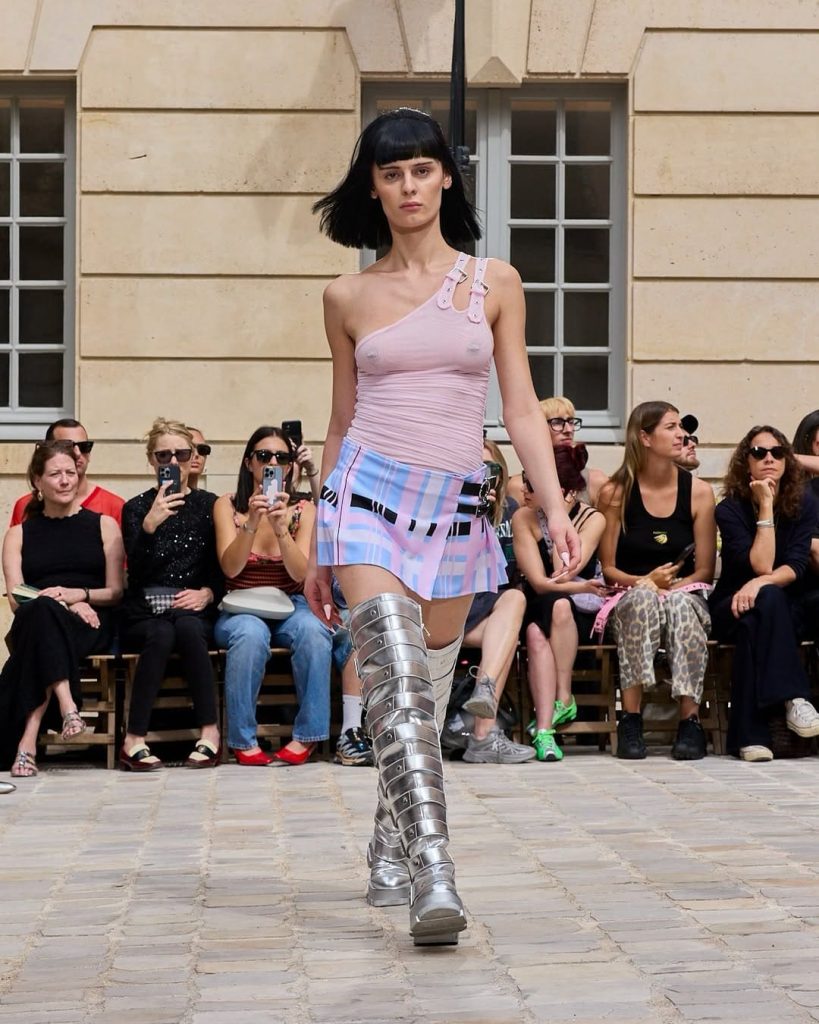
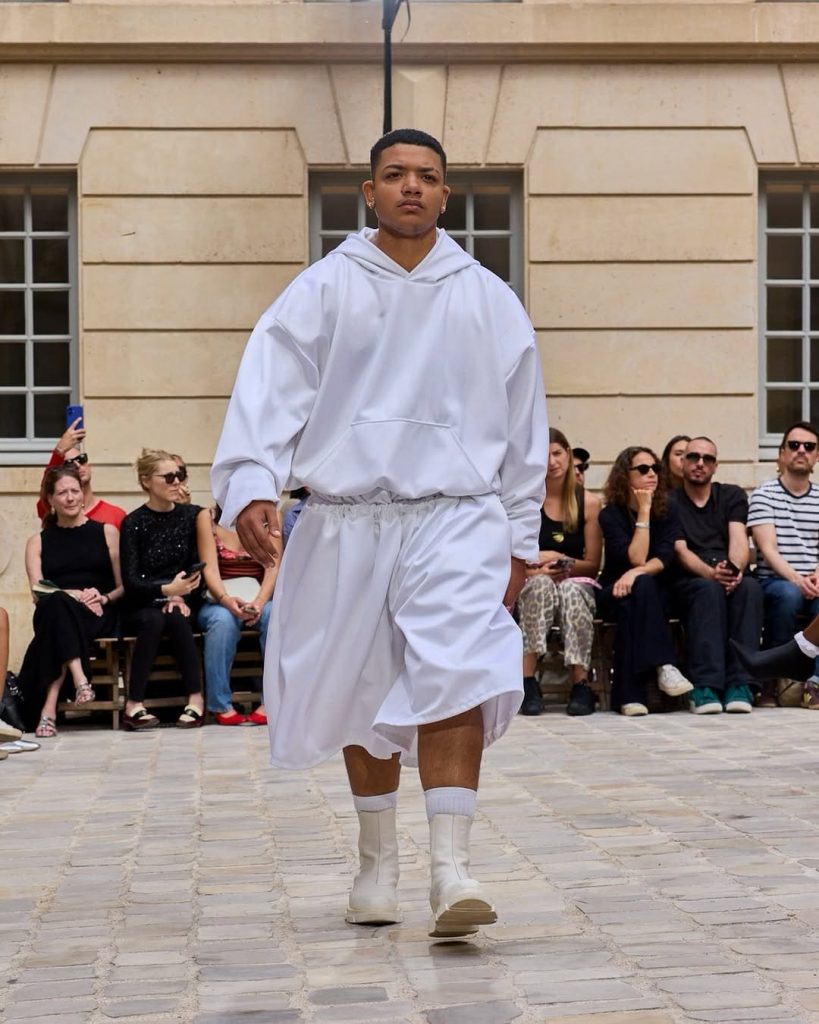
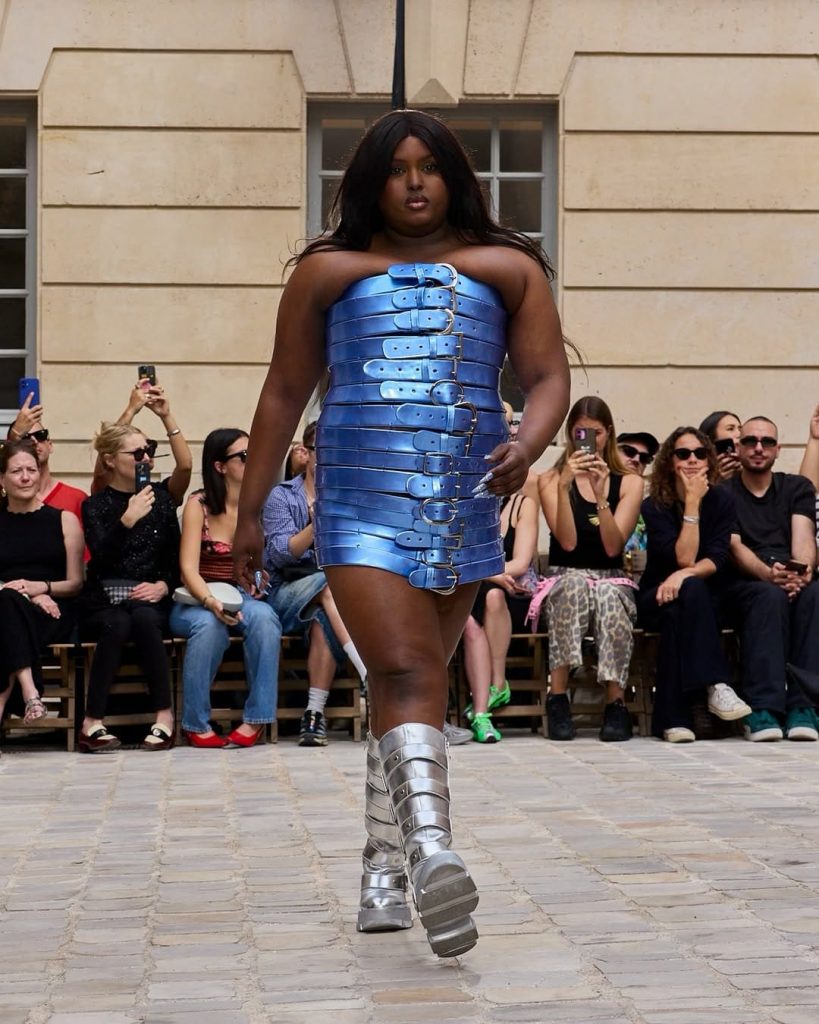
On the runway: people far too often absent from traditional catwalks. Pink and blue dominate. A direct reference to the trans flag. The silhouettes resemble poetic suits of armor, featuring knee-high boots with metallic buckles.
The finale feels like a joyful protest: models come together, fists raised, tears running down their cheeks. In the audience, Virginie Despentes applauds fervently. At Jeanne Friot, fashion becomes a space of communion, a place where building community is not a pose but an extension of identity.
The open casting of 3. Paradis and Willy Chavarria
A different approach, but just as powerful: a few days before their show, 3. Paradis held a massive open casting that drew over 2,000 people. From that group, 30 were selected to walk in “Steps to Nowhere”, a dreamy, socially engaged collection.
Designer Emeric Tchatchoua aims to open the doors of a system that’s often closed off. No need to be signed to an agency or meet conventional standards. The chosen profiles were diverse, breaking away from the usual molds: no set height, age, or body type.
Jordan, one of the selected models, said he took a chance in hopes of regaining self-confidence. A reminder that fashion can be a tool for empowerment when it reaches out.
Willy Chavarria also cast unsigned models to fill his lineup. In a powerful staging, the Latin-American designer denounced prison conditions in El Salvador by grouping models one by one in a setup evoking mass incarceration. It was another bold political statement from Chavarria, who opposes Donald Trump’s deportation policies and often dedicates his work to marginalized communities in the U.S.
Titled Huron, his Spring-Summer 2026 collection is a heartfelt tribute to his hometown of Huron, California and, more broadly, to all Latin and migrant communities affected by border violence and detention policies. In line with its inclusive casting, Huron is a declaration of love and defiance. A prayer for those America wants to forget and a shining example of how fashion can be a space for resistance.
C.R.E.O.L.E: A Plurality of Bodies for a Decolonial Fashion
With its SS26 collection “DOM TOP FEVER”, C.R.E.O.L.E. once again asserts its political commitment through a deeply diverse casting. On the runway: racialized, queer, ultra-muscular bodies far removed from fashion’s imposed standards. Bodybuilt, powerful, proud silhouettes rarely seen on Parisian catwalks. A clear intent to restore visibility and dignity to marginalized body types.
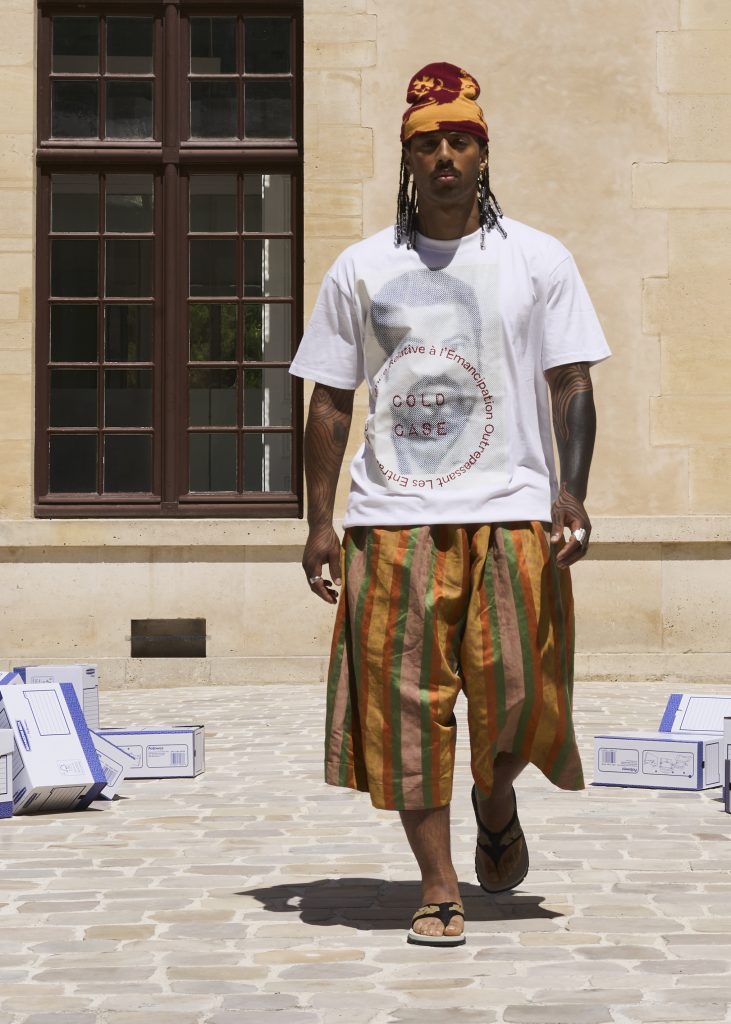
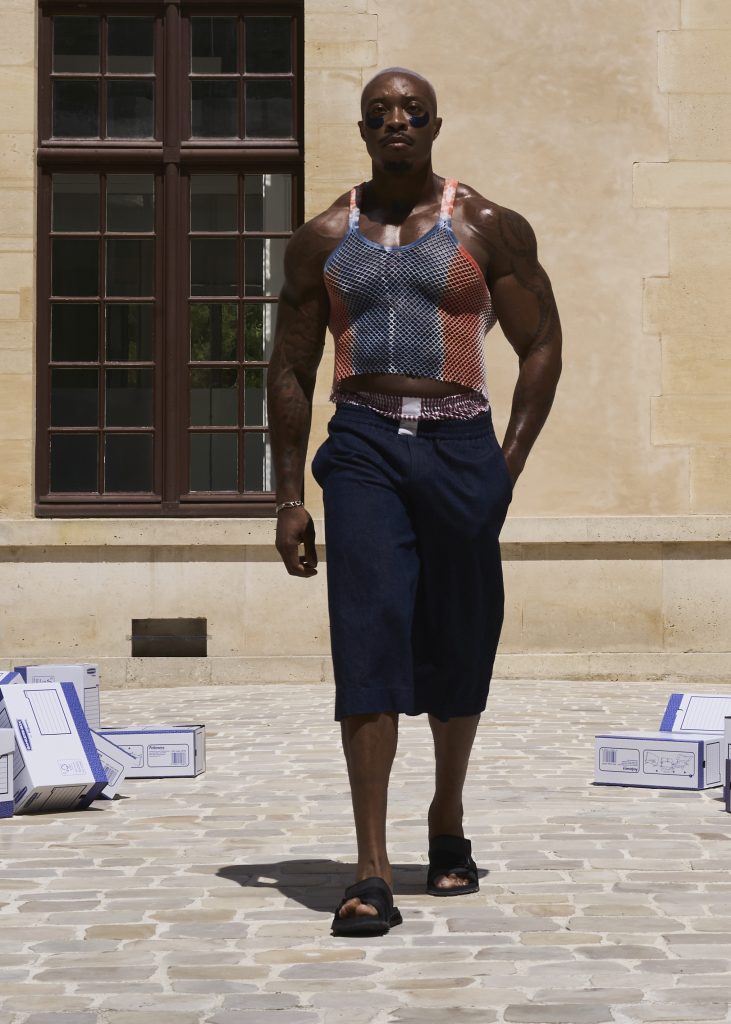
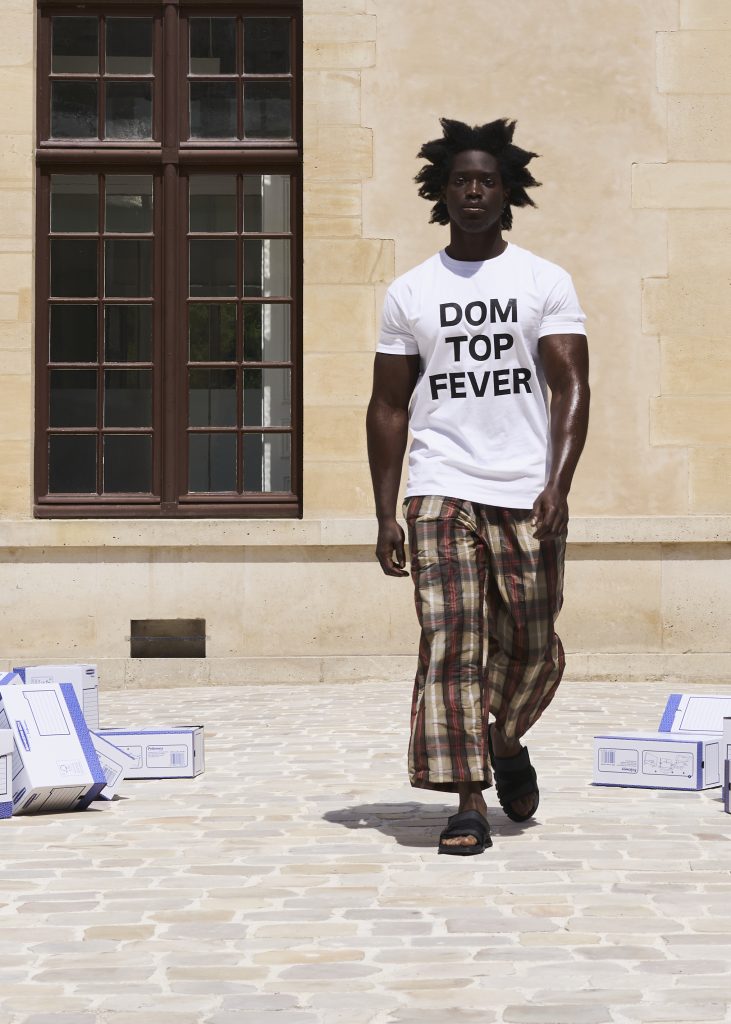
This diversity isn’t just a visual effect; it’s the logical continuation of a wardrobe conceived as a tool of memory and resistance. Inspired by BUMIDOM, the May 1967 massacres in Guadeloupe, and Pan-African narratives, the collection draws on diasporic memory to tell stories of exile, struggle, and identity reclamation. The title itself DOM TOP FEVER plays ironically with assigned roles: going from “dominated” to “dom-top” flips the narrative, asserting one’s desire, power, and body.
At C.R.E.O.L.E., clothes do not dress a neutral body, they celebrate a body bearing stories, tensions, and pride. A casting worthy of this manifesto, redefining the contours of a decolonial, embodied, poetic and above all, political fashion.


